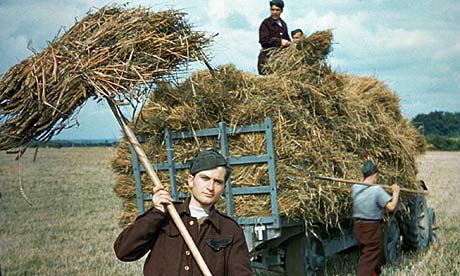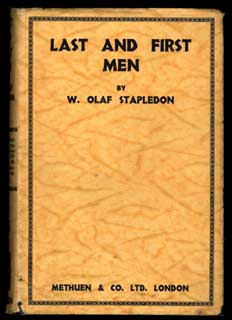Good fortune, and printers’ timetabling, has meant that August’s Forum book was discussed at July’s Thursday afternoon Reading Group. I love reading comments on the Forum, but this provided an excellent opportunity to get some live input from other Persephone readers before starting to write about Tell it to a Stranger.
Interestingly, several members of the group confessed to being reluctant readers of short stories, or to be more accurate, reluctant buyers of collections of short stories, a reluctance which I have to admit to sharing. Was it because we preferred the total immersion of a novel? Because of the difficulty of holding more than one or two stories in one’s memory? Read at a sitting, the first is either obliterated by the second and then the third. The solution, of course, is to read each individually and give it space. But then if we have enjoyed one, we want to taste the next. Perhaps short stories are best as the book in one’s bag, or on the bedside table – a short read before sleeping. We did not arrive at a conclusion, but all agreed that while we might not buy them for ourselves, we loved receiving them.
Some of us, and again I include myself, had opened Tell it to a Stranger, expecting, for no other reason apart from the wartime context, to find some of the sharp, wry humour of Molly Panter-Downes. The material of the opening story – a coach load of heavily pregnant women arriving at a country house nursing home, to await the births of their babies – could well have been the inspiration for one of Molly’s Wartime Stories. How different it would have been. Elizabeth Berridge’s stories are far darker. ‘Bleak’ was the adjective most used in the Reading Group, but while this catches the feel of the subject matter and many of the settings, it does not convey anything of the enigmatic quality of the characters, glimpsed at unexpected turning points in their lives, moments at which they are forced to reassess themselves, to confront change. ‘Tiny, concentrated explosions’, was Berridge’s phrase for the essential ingredient of the short story.
What the stories do have in common with Molly Panter-Downes’ is that they take place in a predominantly female world, in which men are either absent in the forces, on leave, invalided out, or too old to fight, or simply ‘voices off’. It is a woman’s world but one in which they have not found their place. Married women juggle the needs of children and husbands, the unmarried battle to get through the days.
Lady Hayley (‘Subject for a Sermon’) is not a sympathetic character, and one feels for her neglected son, home on leave, seeking maternal approbation, congratulation indeed, (where is his father?), but her speech to the assembled cake-bakers contains a germ of truth. War is testing for a woman who must ‘add to her usual roles of companion and mother, that of organizer … It was a struggle all the time, with no medals at the end.’ But her parting words, ‘I feel so much – so much at one with you all’, ring hollow. Lady H’s ‘minder’, poor Miss Pollett, can never be her friend. War destroyed many things but not the barriers of class.
Elizabeth Berridge and her husband, may have been able, as she writes in her illuminating afterword, like Alice, to step effortlessly from square to square in the chessboard of social divides in their Welsh wartime retreat. It was unusual and she recognises that it was due to their position as ‘outsiders’ and to being writers and therefore classless. Social class is a given in her stories, challenged in some, shaken a little, but not radically. In ‘To Tea With the Colonel’ it is Miss Morton who is forced, by the Colonel’s perfect manners, to reassess her angry indignation at a system which permits such inequality. Her words go unheard. The Colonel may be deaf and helpless, but the moral victory goes to him, as it does to Captain Banks, boldly challenged by his ‘Chance Callers’, a young couple in search of a somewhere to live. The Johnsons demands are met in a way that they did not expect and which will rattle their prejudices. Another tiny explosion.
Rank, like class, is jealously guarded. The doctor (nameless, and timeless – a figure not unfamiliar to mothers of the sixties and seventies), and her nurses, expect acquiescence from ‘their’ mothers to be. ‘Snowstorm’ looks at what happens when one arrives who shakes the doctor’s certainties, stirs unsuspected jealousy, contesting her ability to control other women’s destinies, and questioning her very vocation.

These clashing encounters take place during and largely because of the war, which shifts people out of familiar physical, emotional, psychological surroundings. Relationships must be newly forged, or reassessed. A husband comes home on leave demanding a night out: time together is short, the baby will be fine alone, soothed by his mother’s recorded voice. ‘Lullaby’ is the most shocking example, but several other stories turn on the urgency imposed by the timetable of war. With unlimited time together Lady Hayley would not have had to choose between her son and her perceived duty. The cracks in the relationship could have remained safely papered over. At home, with the father of her child, Theresa Jenkins (in ‘Snowstorm’) might have had a proper, even a loving conversation. Instead she must listen to a voice on the telephone and act alone, in a remote nursing home, among strangers.
War displaces people. Men go off to fight, women are rehoused. Miss Morton (‘Tea With the Colonel’), bombed out of her Bayswater room and still nursing the leg injury, has made a sort of home for herself in a tiny rural cottage. Mrs Hatfield, in the title story, has chosen to leave her lonely flat for the companionship of a seaside guest-house. And war sets up strange meetings. A German prisoner of war provides unexpected companionship for an elderly spinster, bringing back memories of youth and a loved brother. But the tide of wartime manoeuvres removes him as suddenly as it delivered him.

Elizabeth Berridge, perhaps not yet a mistress of the short story – some at the book group felt that some were over long, while others could have benefited from a few more pages – shows extraordinary skill in taking a detail, a snippet of conversation, and allowing it to grow in her imagination. The new technique of recording a tender message onto plastic is taken to a chilling conclusion. Bombs, it seems, can reach even the quiet seaside boarding house. She plays narrative games of the ‘what if’ variety – what if a man set out from home to get a job and on a whim decided not to return to his miserable wife? She teases the reader: a man is holding gun at the start of a story. Will it be fired, or put away in a cupboard by the end? Perhaps because the atmosphere of one story infects others, an innocent visit by a museum curator looking for manuscripts, is oddly unsettling.
Characters are drawn in swift, defining strokes. Mrs Munday, ‘whose breathing even in sleep was mean and tearful’; Aunt Doris, whose ‘teeth flashed frantically in the sun as she shouted fresh abjurations’ after Ruby; Sister Matthew’s actions are ‘repellent – impersonal as a brothel keeper’s, partially undressing a girl for a client’s appraisal’. Back-stories are told in a few words, ‘Miss Morton had often mentioned Miss Lumley in letters to her half-brother George, who had made it possible for her to go away when the ceiling came down on to the blue carpet of her Bayswater room’ – a sentence that speaks volumes. When Miss Everton asks her prisoner of war, Erich about his family she ‘learnt that his father was dead, that he sent his mother parcels when he could, that on the whole he was disappointed with England, finding it dirty and unfriendly’. The voice is perfect and not a word is wasted: the insertion of that little phrase ‘on the whole’ is bold and brilliant. Her mastery of the throwaway phrase makes it too easy to miss a telling, witty or grim detail. Lady Hayley judges war-time recipes ‘cakes, puddings, biscuits, all containing some measure of soya flour’. In her afterword to this collection Elizabeth Berridge describes her cottage in Montgomeryshire, ‘We had three-quarters of an acre of land, an outside privy in which the previous owner had shot himself, no electricity, and a pump outside the front door.’ The cottage, its history, and the daily life of the young couple are all there.

Incidentally I have just received an alert from the Society of Authors warning that ‘the BBC has reduced the number of short stories it broadcast from to five, to three, and now to one a week’, as part of the reorganisation of the BBC Radio 4 schedule. Lovers of, or maybe even just occasional enthusiastic dippers in to, short stories can sign an online petition on the National Short Story Week website.
Questions
A.N. Wilson considers these stories to be ‘much more than period pieces’. Do you agree? How do they compare in that respect to the stories of Mollie Panter-Downes?
Is it fair to describe these stories as ‘bleak’?
Do you agree with the Reading Group comments about the length of the stories – too short, too long?
Do you share, and if so can you explain, the ambivalent attitude towards short stories as a genre that so many of us feel? Love them when we read them, but rarely buy them.
Quotes – some of my favourites, do share yours.
‘When you were old, you saw further than the spring of the year; in one pink opening of a bud there was fruitfulness and decay. Looking at the apple tree with its low unpruned branches, she saw the flowers fade and die, small apples form, grow big and lie in baskets; saw the solemn dropping of leaves, the bare tree.’
‘The cottages stood like buffeted heaps of stone and rubble and the church in the midst of them was just a larger heap strengthened with flint, still intact upon its Roman foundations, and bearing an elaborate gilt weathercock, given by a wealthy landowner in memory of his son.’
‘For a moment Miss Morton sat utterly still. It was as if someone had lifted a weight of pain and degradation from her years of living nervously in rooms, of odd jobs that meant just enough food: hurrying, graceless crowds. Then, quite suddenly, she burst into tears.’
‘The Colonel would have spoken, but he was no longer in contact with the world. And he had never known what it was to doubt or bitterly regret a cruelty, for he had never been cruel. So he stood, concerned and helpless, while the sun flooded into the room, giving it the grace, polish and serenity of a discarded age.’
If you enjoyed this book you might also enjoy:
Good Evening, Mrs Craven by Mollie Panter-Downes (Persephone Book No.8)
Tea with Mr Rochester by Frances Towers (Persephone Book No.44)
A Woman Novelist and Other Stories by  Diana Gardner  (Persephone Book No. 64)
The Closed Door and Other Stories by Dorothy Whipple (Persephone Book No. 74)
4 replies on “Persephone Book No 15: Tell It to a Stranger by Elizabeth Berridge”
I agree with everything you say about short stories and some writers do them better than they do novels. I have just read Mollie Panter-Downes’ ‘One Fine Day’, and, having loved her stories, was disappointed; it’s beautifully written, but without a plot. Elizabeth Berridge is not quite as good as MPD – but she is good.
Two pieces stuck in my mind (it’s a few months since I read the book) without difficulty. The first, ‘Snowstorm’ – cold, bleak, horrifying. Elizabeth doesn’t tell us straight away that the doctor is female, and, in the 1940s, readers would have expected a man. And ‘Lullaby’, of course. Apparently some readers at the time were very shocked by it – and so they should have been, I say. It’s wartime. Of course the young couple want to go out and have some precious time together, and there are no servants. Many people still leave their children alone at night, and, ninety-nine times out of a hundred, everything is fine. And then, just occasionally, as in the case of Madeleine McCann, it all goes terribly wrong.
I’m also enjoying the short stories of Diana Athill and Irene Nemirovsky. Perhaps you would get more readers if you published a colection of the best women’s short stories by different hands?
My comment is a bit off the subject but in case anyone else has not read “One Fine Day” can I just put an opposing view? I read the entire book in the course of a train journey and loved every minute of it. Perhaps it is best read as an extended short story rather than in the expectation of a well plotted novel. And read at one go undoubtedly made a difference.
I would not describe myself as a natural enthusiast for short stories but have loved both Elizabeth Berridge and M P D. The insight into social mores in and around the Second World War is perhaps part of the appeal.
No, I don’t think the stories are bleak at all. They’re not all always cheerful but bleak is not the word. I do think she is skilful. I like the way she contravened my expectations as a reader, rather like Roald Dahl in his ‘Kiss Kiss’ stories but with a slow realisation rather than a sudden sick shock at the end. For example, in ‘Snowstorm’ it was the doctor not the patient who became the focus of attention; in ‘Firstborn’ the hated husband surprises his wife and the reader by putting her before the baby; in ‘Woman about the House’, we get the husband’s viewpoint rather than the disappointed wife’s; in ‘Lullaby’ we do not expect to be faced with the baby in real danger; in ‘Tea with the Colonel’ we might expect Miss Morton’s surprising outburst to bring some relief to her bitterness but it doesn’t; and in ‘The Notebooks’ it comes as a surprise that Lenny’s death is due to more mundane causes than action during the war. But the best example is in ‘Chance Callers’ where Elizabeth Berridge is masterful in unfolding the background of the returned soldier and his wife without ever telling it in so many words. Reading it was as satisfying as solving the clues of a cryptic crossword.
I must admit to having shunned short stories for years. I read some of Jane Gardam, and Alice Munro, but still felt disappointed when they ended so swiftly. Having enjoyed novels by Elisabeth Berridge I bought ‘Tell it to a Stranger’ and this changed my mind, I began to appreciate the genre in its own right. They are clever, some perhaps a little bleak but reflected the times, and I loved the way they represented such varying characters in a variety of situations. I don’t really see them as period pieces, they were wartime stories. I then tried D Whipple’s ‘Closed Door’ and loved it. These stories varied in length, which I liked, and the title story was wonderfully funny, just perfect. Next I read M P Downes and Diana Athill I am quite converted. (I did also enjoy ‘One Fine Day’, (thanks to AbeBooks) but yes, it did lack a plot.) Katherine Mansfield is next on my list …